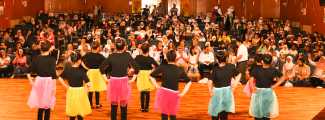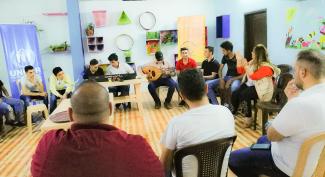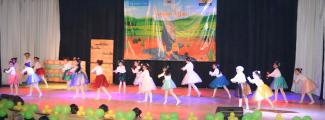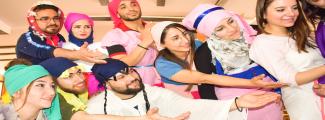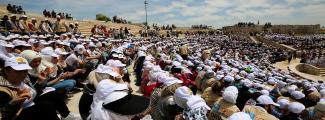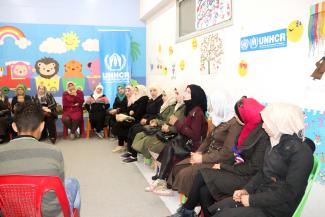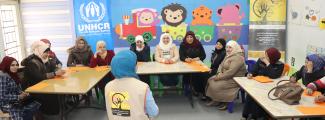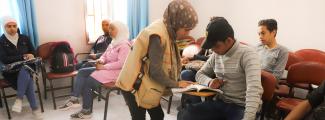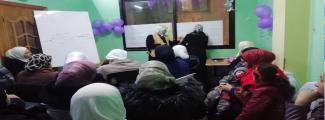Hasan, a 15-year old, lost his parents and fled his home. He was deprived of warmth, his home city, where he grew up. War had its toll on him, his younger siblings and his elder brother and his family (wife and kids), they all fled to Damascus Suburbs, where they lived in a company in Adra Industrial City
Hasan arrived to Damascus, without parents, without hope, without identification documents, and unable to carry on with his education. Encircled by high cost of living and harsh living conditions, Hasan had to financially support his elder brother.
He worked in a mechanical workshop, the work environment posed many dangers to Hasan, particularly given his young age. After some time has passed, Hasan came to know of Farah Community Center (SSSD) through the activities of child protection program. He considered the center his safe haven, where the team received him with warm heart and carefully listened to his worries
The case manager gradually built confidence with Hasan. After some sessions, the adolescent boy opened up his heart by saying, “I am subject to violence, the workshop owner beats and insults me, but I cannot quit my work, I need money to ensure my younger siblings and I could live with ease.”
The case manager designed the intervention plan along with his Hasan. She referred him and his family to Syria Trust’s legal program to obtain a lost replacement of the civil status family book and other identification documents. She also referred him to the mentor program and child protection campaigns. Since he showed a strong will to carry on with his education, she referred him to the remedial educational classes offered at the center.
The case manager closely followed up on Hasan’s progress and met up with his elder brother to come up with solutions to his problems, including work.
Hard work paid off: close attention to respond to Hasan’s needs and alter the dangers he faced; Hasan’s life is positively progressing, you could see him smiling again, you could sense hope in his attitude and his words seem more clear.
Today Hasan has identification documents, he has friends, he is no working in the dangerous workshop environment, he started a new job at a barber’s shop, where he faces less dangers on his health and his physical and psychological growth. His educational level is better. Hasan expressed his advancement by saying,
“I was reborn today. I know exactly what to do and how to carry on with my life. I am studying and I am ready to sit for the Ninth Grade National Exam at the end of this year. I have friends. I am working in a proper place and I am learning a good vocation. I am able to provide for myself and my younger siblings.”
Hasan did not regain his home; however, the Syrian Society for Social Development restored his dignity and helped him regain his right to education. With hope and persistence, Hasan would build a resilient home that withstands destruction

